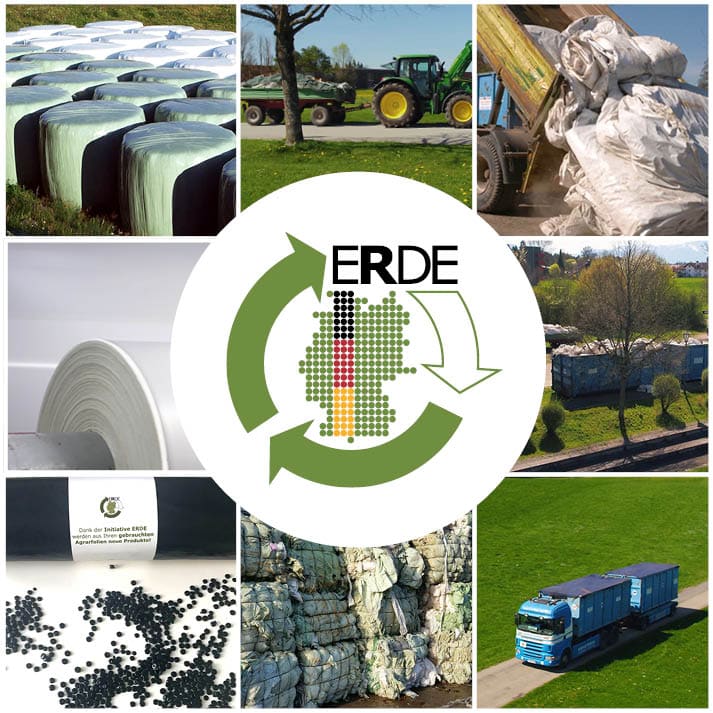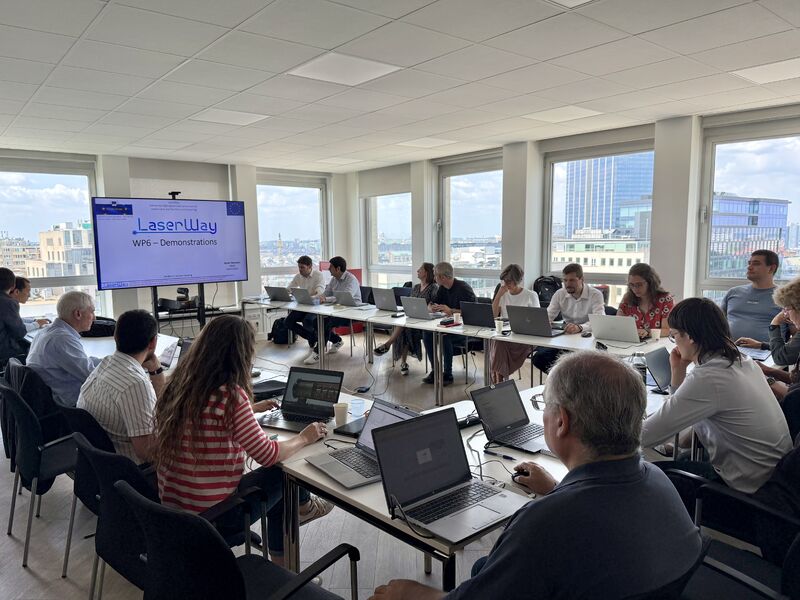In a world increasingly demanding sustainable solutions, agriculture faces the challenge of efficiently managing plastic waste generated in its operations. In this context, AZUD has joined the ERDE initiative (Erntekunststoffe Recycling Deutschland), a leading program in Germany that facilitates the collection and recycling of agricultural plastics, including irrigation driplines.
ERDE, under the umbrella of the IK Industrievereinigung Kunststoffverpackungen e.V. association and managed by RIGK GmbH, is dedicated to creating a closed-loop system for used agricultural plastics. This system not only ensures the recycling of materials such as silage sheets, nets, and irrigation driplines but also significantly reduces agriculture’s carbon footprint. The initiative relies on a nationwide network of collection points where farmers and distributors can deliver these materials, which are then processed into new raw materials.
AZUD, internationally recognized for its high-precision irrigation systems, was among the first companies to collaborate with ERDE to include irrigation driplines as a category within the program.

This effort underscores AZUD’s commitment to sustainability by ensuring that products at the end of their lifecycle do not become waste but are recycled appropriately. Through this initiative, AZUD offers its partners and clients in Germany a practical and efficient solution for managing agricultural plastic waste, providing access to a specialized recycling network. Furthermore, this collaboration not only helps reduce the environmental impact of products but also promotes the transition to more sustainable agriculture, grounded in circular economy principles.
The inclusion of irrigation driplines in the ERDE system allows these plastics to be transformed into new materials, thereby closing the product lifecycle loop. This approach not only minimizes waste but also significantly reduces the carbon footprint of agricultural operations.
“At AZUD, we are very pleased to be part of this important initiative, contributing to more sustainable agriculture,” says Ramon Alcaraz, International Sales Manager at AZUD.
A step toward comprehensive sustainable development
AZUD’s participation in the ERDE project not only addresses the immediate need to manage plastic waste but also aligns with a global vision of sustainability framed within the United Nations’ Sustainable Development Goals. In particular, this collaboration highlights the achievement of Goal 12: Responsible Consumption and Production, which advocates for waste reduction and efficient use of natural resources.
By fostering a circular economy model, AZUD helps create a system where materials are not discarded but recycled and reused, minimizing environmental impact. This approach benefits the environment and provides economic advantages for farmers, who can significantly reduce costs associated with plastic waste disposal through recycling.
Additionally, the initiative reinforces AZUD’s commitment to sustainability, ensuring that every stage of its product lifecycle, from production to disposal, adheres to principles of environmental responsibility.
José Ginés Sánchez, Quality and Environmental Manager at AZUD, emphasizes: “Our collaboration with ERDE not only reflects our ongoing commitment to sustainability and environmental responsibility but is also a key step within our global sustainability strategy. This initiative strengthens our alignment with the Sustainable Development Goals, particularly regarding responsible production and consumption (Goal 12), promoting more responsible and environmentally friendly agricultural practices.”
The recycling of irrigation driplines, now integrated into ERDE, has proven to be an efficient solution for both farmers and the environment. Recent studies indicate that recycling costs are up to 50% lower compared to traditional methods such as incineration. Furthermore, the initiative significantly contributes to reducing CO₂ emissions and optimizing resource utilization.
Through this collaboration, AZUD takes a decisive step toward sustainability, demonstrating that agricultural innovation extends beyond the fields to shared environmental responsibility.




